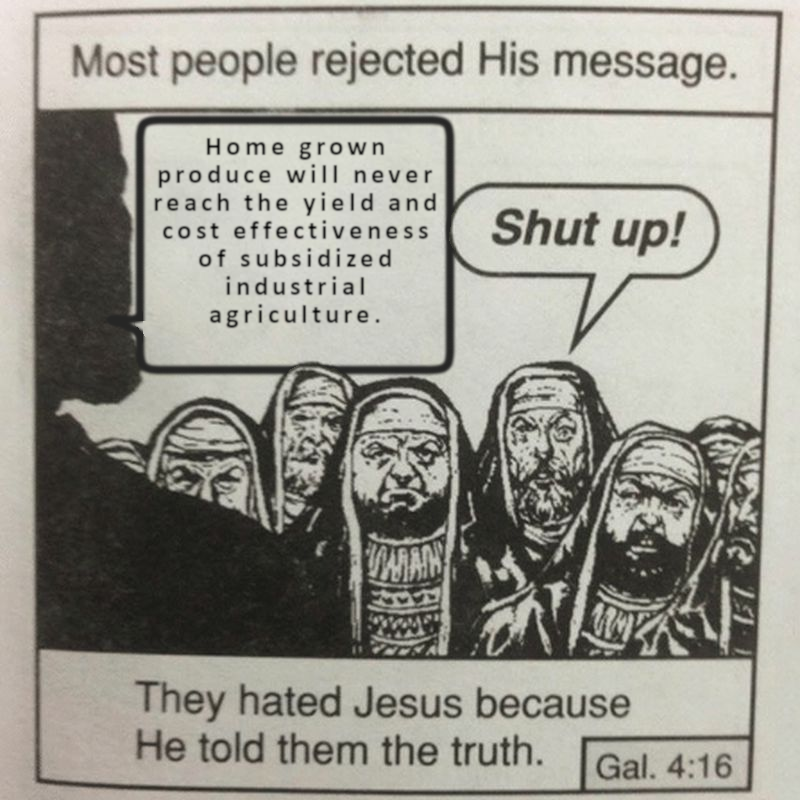this post was submitted on 13 May 2024
789 points (91.8% liked)
Science Memes
11892 readers
1740 users here now
Welcome to c/science_memes @ Mander.xyz!
A place for majestic STEMLORD peacocking, as well as memes about the realities of working in a lab.

Rules
- Don't throw mud. Behave like an intellectual and remember the human.
- Keep it rooted (on topic).
- No spam.
- Infographics welcome, get schooled.
This is a science community. We use the Dawkins definition of meme.
Research Committee
Other Mander Communities
Science and Research
Biology and Life Sciences
- [email protected]
- [email protected]
- [email protected]
- [email protected]
- [email protected]
- [email protected]
- [email protected]
- [email protected]
- [email protected]
- [email protected]
- [email protected]
- [email protected]
- [email protected]
- [email protected]
- [email protected]
- [email protected]
- [email protected]
- [email protected]
- [email protected]
- [email protected]
- [email protected]
- [email protected]
- [email protected]
- [email protected]
- !reptiles and [email protected]
Physical Sciences
- [email protected]
- [email protected]
- [email protected]
- [email protected]
- [email protected]
- [email protected]
- [email protected]
- [email protected]
- [email protected]
Humanities and Social Sciences
Practical and Applied Sciences
- !exercise-and [email protected]
- [email protected]
- !self [email protected]
- [email protected]
- [email protected]
- [email protected]
Memes
Miscellaneous
founded 2 years ago
MODERATORS
you are viewing a single comment's thread
view the rest of the comments
view the rest of the comments

And for the inevitable "it's too expensive" and related comments:
Not to mention, per kilogram, it's more polluting than simply buying at a grocery store
If you're saying local farmers pollute more then I think you're mistaken. Local farmers by definition are local so they drive closer.
It's the same situation as when you grow a pear in Argentina, send it to Malaysia and back to usa.
Boats are simply too big
A local farmer doing restocking trips, buying and transporting, you on trips buying the stuff needed to make those sweet iron and vitamin deficient mini tomatoes, soil, fertilizer, etc, consume lots of energy. Which might seem like a little but multiply that effort by the proposed method of "everyone planting and harvesting their own shit" and you soon see that it was kinder to mother earth and the climate to just transport shit over a cargo ship burning 400 trucks worth of fuel in one trip and transporting the equivalent of 9000 trucks, than you doing the 400 trucks worth of fuel trips and transporting, well 400 trucks worth of goods
It’s basically about scale. Shipping container ships run at low speed and maximize fuel efficiency.
When you drive, most of the fuel is used propelling the car forward, backwards, upwards and downwards. You make up a small amount of the stuff moved. You also change speeds. You come to full stops, take turns, maybe even go the wrong way. All of that is “wasted” energy that goes to the polluting impact of your vitamin deficient mini tomatoes.
However, a ships engine mostly works way more in per portion to move product across the oceans. Importantly once it maps out it’s routes and hits speed, it doesn’t deviate. Once the ship is up to speed getting it to keep going forward isn’t very hard.
It’s almost (because of need if preexisting infrastructure) the same with rail. The ability to carry a ton of stuff and maintain the same course and speed saves so much fuel, lowering the carbon footprint of any transported goods to your place to something miniscule you could never actually achieve by your own machinations
That's why they pollute more. That's right your homegrown tomatoes are more polluting than those of a mega corporation
Read this scientific article and you might be right
https://phys.org/news/2024-01-food-urban-agriculture-carbon-footprint.html
Absolute nonsense. If you are going to make such ridiculous claims you should probably take the time to back it up with some kind of data. Good luck with that.
Simply adding up the food miles gets you more "pollution" with store bought than local farms.
It depends how you measure it, and what counts as 'polluting'. Does broad-scale habitat destruction count? Because there's a lot more of that in industrial agriculture. Also yields are prioritised over quality, so you're literally not comparing apples with apples if you're getting local heirloom varieties from nearby orchards, compared with apples grown in the PNW for the broader market and kept chilled until ready for sale. These are generalisations of course and there are staple crops that are much more efficient when produced with broadacre cropping.